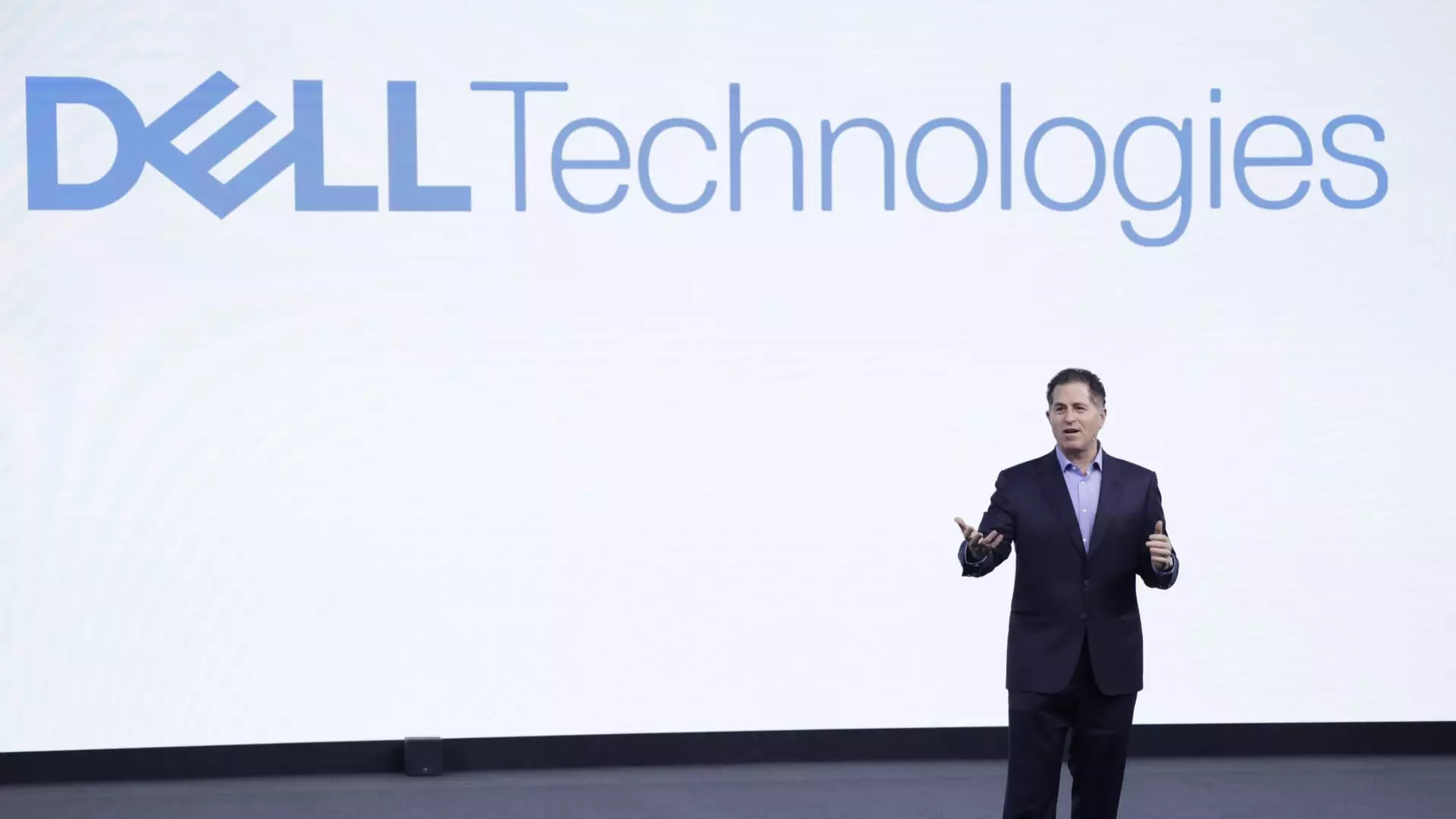Dell Technologies experienced a significant drop in its stock value, plummeting over 16% in a single day. The primary reasons for this decline were disappointments in the company’s artificial intelligence (AI) server backlog and potential margin decreases. Despite surpassing analyst predictions for the fiscal first quarter, Dell’s shares were heavily impacted by concerns over its future performance.
In the first quarter, Dell reported revenues of $22.24 billion, beating analyst estimates. Looking ahead to the second quarter, the company expects earnings of $1.65 per share with anticipated sales ranging from $23.5 billion to $24.5 billion. While Dell has forecasted full-year sales to be between $93.5 billion and $97.5 billion, investors remain skeptical about the company’s ability to maintain profitability and growth in the long term.
Bernstein analysts highlighted the disappointment in Dell’s results, specifically focusing on the compression of operating margins within the Infrastructure Solutions Group. Despite a substantial increase in AI server revenues, concerns arose regarding profitability, as operating profits remained flat year over year. The analysts expressed worries that Dell’s AI servers might be sold at minimal margins, indicating a disconnect between AI initiatives and financial gains.
Bank of America analysts maintained a positive outlook on Dell, citing a strong quarter performance and reiterating a buy rating on the stock. However, concerns over the lower-than-expected AI server backlog and the projected decline in growth margin led to an after-hours sell-off. Despite acknowledging the sell-off, JPMorgan analysts believed that the market reaction was exaggerated and that Dell’s long-term prospects remain promising. They emphasized the potential for significant revenue and earnings growth, highlighted by accelerating AI demand trends.
Dell Technologies is facing challenges in translating its AI initiatives into sustainable profitability. While some analysts remain optimistic about the company’s future, investor reactions have been largely negative. Dell must address concerns regarding margin compression and stagnant operating profits to regain market confidence and drive sustainable growth in the long term.

